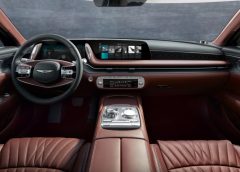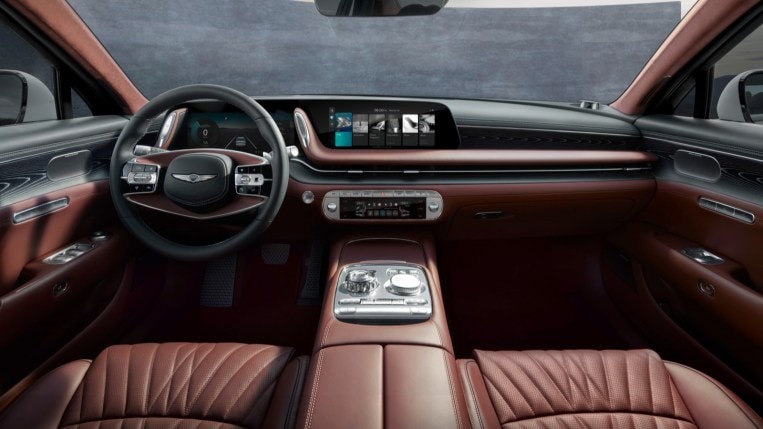
Study: Hyundai, Genesis Have Best Tech User-Experience
[ad_1]
 All automakers compete to integrate new high-tech features into their cars, but they don’t all do it equally well. Hyundai and its Genesis luxury brand do it well, according to a new study from J.D. Power. Mazda struggles the most among mass-market brands, while Porsche brings up the rear in the luxury division.
All automakers compete to integrate new high-tech features into their cars, but they don’t all do it equally well. Hyundai and its Genesis luxury brand do it well, according to a new study from J.D. Power. Mazda struggles the most among mass-market brands, while Porsche brings up the rear in the luxury division.
The J.D. Power U.S. Tech Experience Index Study looks at the number of problems new car owners report with using their cars’ cabin tech — infotainment systems, cameras, phone integration — as well as automated safety features like automatic emergency braking.
Automakers vary widely in how well they implement each idea.
Scores Show Huge Variation
Take rear seat reminders — systems that detect when someone opened a rear door before the car started and remind the driver to check the rear seat when the drive ends to minimize the risk of accidentally leaving a child or pet in the car. The best of these systems, J.D. Power analysts found, generated just 1.9 problem reports per every 100 cars. The worst generated 26.2.
Related: J.D. Power Study — Initial Quality of New Cars Slipping
That wide variance shows that technologies can be implemented well or poorly. Kathleen Rizk, senior director of user experience benchmarking and technology at J.D. Power, explains, “there is often a wide range of total problems experienced for a technology across the brands. This means that some are innovating more flawlessly for a particular tech, while others struggle with their execution.”
A Demonstration Goes a Long Way
The dealership experience makes a difference, too. Analysts found that drivers were more satisfied with a technology and less likely to abandon using it when a dealership demonstrated how to use it.
Related: The 10 Best Automotive Technologies of 2022
Fingerprint scanners – included for the first time in 2022 – proved the most problematic technology. They generated 54 complaints per 100 vehicles. J.D. Power calls that “a missed opportunity, as many owners have used the fingerprint technology to access their smartphone.”
The Scores
J.D. Power analysts convert the reports into a 1,000-point scale, with higher scores indicating more satisfied owners. Luxury automakers tend to earn higher scores because their cars come packed with more high-tech features.
Some states require automakers to consent for J.D. Power to collect data. Both Tesla and Polestar declined to participate. J.D. Power publishes unofficial scores based on the data from states that don’t require automaker consent.
Based on that limited data, both would have done well. Tesla would have taken the top spot with a score of 681. Polestar would have come in second, at 608.
Mainstream Brands:
| Brand | Score |
| Hyundai | 534 |
| Come on | 495 |
| Buick | 482 |
| GMC | 482 |
| Subaru | 482 |
| Ram | 475 |
| Chevrolet | 471 |
| Nissan | 465 |
| Toyota | 465 |
| Dodge | 464 |
| Mitsubishi | 464 |
| Jeep | 463 |
| Volkswagen | 456 |
| Mini | 447 |
| Ford | 444 |
| Chrysler | 429 |
| Honda | 429 |
| Mazda | 387 |
Luxury Brands:
| Brand | Score |
| Genesis | 643 |
| Cadillac | 584 |
| Mercedes-Benz | 539 |
| Volvo | 526 |
| BMW | 516 |
| Land Rover | 509 |
| Infiniti | 492 |
| Lexus | 491 |
| Jaguar | 488 |
| Lincoln | 482 |
| Acura | 470 |
| Audi | 454 |
| Alfa Romeo | 447 |
| Porsche | 439 |
[ad_2]
Source link


